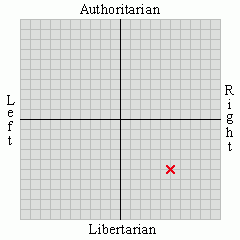The true soldier fights not because he hates what is in front of him, but because he loves what is behind him.On 5th June 1944 thousands of men left the shores of south coast of England to take part in the D-Day landings.
G. K. Chesterton
An invasion fleet drawn from 8 navies and comprising 6,938 vessels made its way across the Channel, including 4,100 landing craft carrying about 156,000 soldiers. 11,590 aircraft supported the landings, including the 1,000 gliders that dropped parachutists behind enemy lines to secure bridges and river crossings.
The soldiers were from Britain and the smaller Commonwealth Countries. They were from Canada, Australia, America, New Zealand - some of these men came from countries not directly affected by the war in Europe, yet they willingly offered their lives for us.
From within Europe men who had escaped from Poland, Belgium, Czechoslovakia, Greece, the Netherlands, Norway and the Free French were trying to get home. The Resistance movement helped smooth the way.
These men were fighting for peace in Europe, attempting to end the tyranny and bloodshed caused by the authoritarian arrogance and bloodlust of one man - Adolf Hitler. Britain (including Malta) was, at that time, the last European bastion of democracy and freedom, the only country not subjugated by the cruel, racist, Nazi National Socialist regime.
On D-Day about 10,000 men were wounded, approximately 2,500 men from the Allied Forces lost their lives. Some lie in carefully tended graves in the 27 War Cemeteries in Normandy, others were lost at sea.
Their families will never forget their personal sacrifice.
As a country, and individually, we should never forget that these men died to ensure those who came after them - us - were granted freedom, and peace in Europe.
Today's freedoms were not gained easily, they were hard-earned, earned by spilling blood. Men of our fathers, our grandfathers and earlier generations died on foreign soil so that we would be free of authoritarian dictators. They fought, and died, so that those who came after them would be free to live their lives without fear and without repression.
Those of us who have grown up since WW2 should cherish that freedom, not treat it lightly or carelessly. We should use our freedom wisely, we should care for and nurture it.
More from G.K. Chesterton - "The Secret People" Written, I think, in 1911.
They have given us into the hand of new unhappy lords,We must hope, and pray, that the unhappy, paper shuffling, recently elevated lords, remember past sacrifices and take great care not give away our freedoms with the flick of a pen.
Lords without anger or honour, who dare not carry their swords.
They fight by shuffling papers; they have bright dead alien eyes;
They look at our labour and laughter as a tired man looks at flies.
And the load of their loveless pity is worse than the ancient wrongs,
Their doors are shut in the evening; and they know no songs.
We hear men speaking for us of new laws strong and sweet,
Yet is there no man speaketh as we speak in the street.
It may be we shall rise the last as Frenchmen rose the first,
Our wrath come after Russia's wrath and our wrath be the worst.
It may be we are meant to mark with our riot and our rest
God's scorn for all men governing. It may be beer is best.
But we are the people of England; and we have not spoken yet.
Smile at us, pay us, pass us. But do not quite forget.





No comments:
Post a Comment